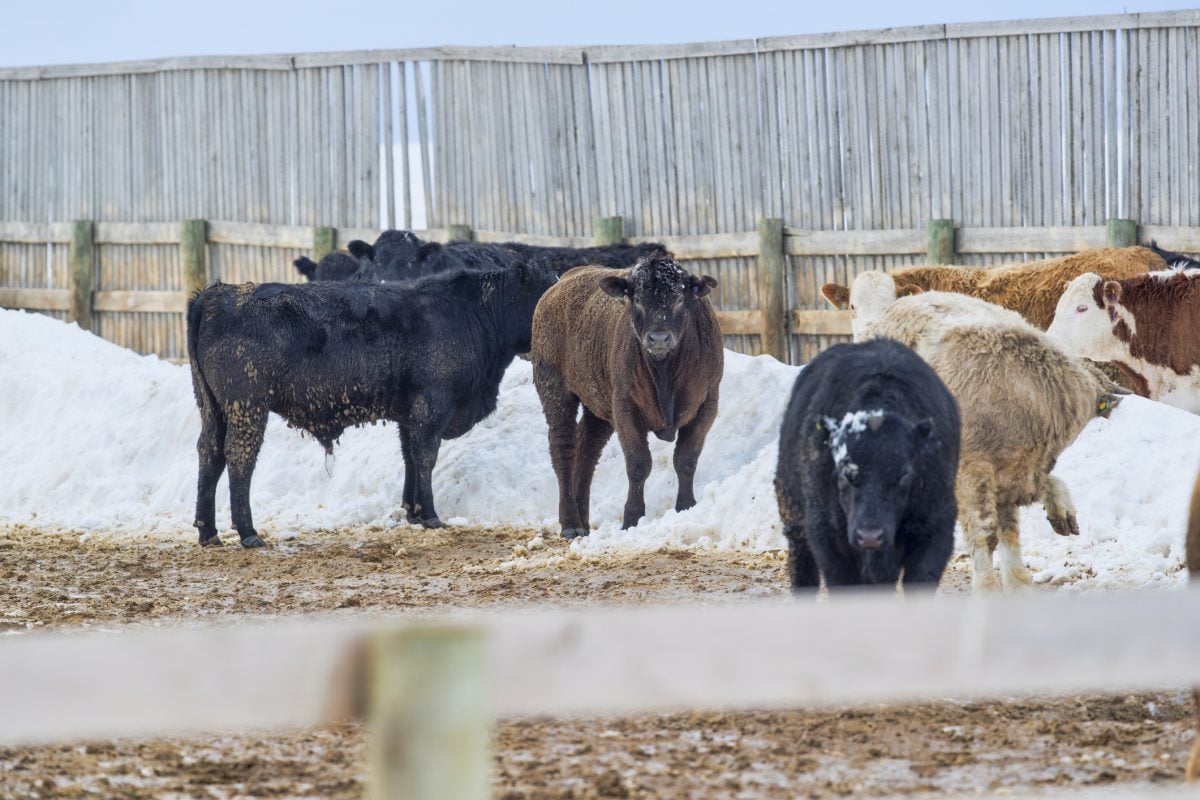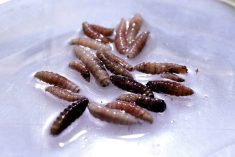The World Trade Organization’s Dispute Settlement Body is set to hear Canada’s request in just under two weeks for revenge against the U.S. over country-of-origin labelling (COOL).
Canada on Thursday filed its request for authorization of retaliatory tariffs, to be considered at a DSB meeting on June 17, the federal government said.
Barring a repeal of the U.S. government’s COOL legislation, Agriculture Minister Gerry Ritz said Canada expects to have its tariffs in effect late this summer.
The authorization, if approved as requested, would allow Canada to impose up to C$3.068 billion in new tariffs per year on imports of U.S. goods.
Read Also

Klassen: Feeder cattle market starts 2026 with stronger tone
For the week ending January 10, Western Canadian feeder cattle markets were up $8-$10/cwt on average compared to three weeks…
Canada has based its figure on the label laws’ impact on Canadian exports of cattle, hogs, beef and pork. Such exports have been found to be hampered by the added cost of segregating Canadian and Mexican livestock and meat all the way down the U.S. supply chain.
Once authorization is received, the government said Thursday, it will choose “how and when” to retaliate. Since mid-2013, Ottawa has had a list in place now including 38 types of U.S. goods.
Of the $3 billion per year, Ritz said, imports from the U.S. meat industries alone are expected to see tariffs worth $1.8 billion. He described the overall list as a “living document” on which Canada can add and subtract various U.S. goods as required.
In a separate joint statement Thursday with Ritz and Canada’s Trade Minister Ed Fast, Mexican ag and trade officials said they will seek separate WTO authorization for over US$653 million in retaliatory tariffs.
The Reuters news service on Thursday quoted a spokesperson for the U.S. Trade Representative’s office as saying the annual values Canada and Mexico have stated are “substantially inflated.”
The USTR told Reuters it will seek WTO arbitration at the appropriate time.
Ritz, on a conference call Thursday from Washington, D.C., emphasized the tariff option “is not a road anybody wants to travel,” and warned that some secondary processing industries in Canada will be affected.
However, he said, when the WTO Appellate Body made its fourth and final ruling last month against COOL, the WTO essentially left Washington “out of options and out of time. The only way for the U.S. to avoid billions in immediate retaliation is to repeal COOL.”
Negotiating with the U.S. to allow it to maintain a “watered-down” version of COOL, as some of the label laws’ U.S. supporters have proposed, is not an option, Ritz added. “We will not stop until COOL is history.”
Canadian Pork Council chairman Rick Bergmann, in a separate release, backed Ritz and Fast’s announcement. The WTO, Bergmann said, “has affirmed Canada’s pork and beef industries’ right to fair market access several times and we call on the U.S. to repeal the COOL measures on beef and pork to meet its trade obligations.”
Ritz said Thursday his meetings in Washington this week included one with U.S. Agriculture Secretary Tom Vilsack, and one with Mike Conaway, chairman of the House of Representatives’ ag committee, which on May 20 voted 38-6 to approve a bill to repeal COOL.
Conaway’s stand-alone bill, Ritz said, is expected to appear back in the House of Representatives mid-next week.
The House ag committee’s leading Democrat, Collin Peterson, last month criticized Conaway’s bill as not being the “best way” to avoid Canadian and Mexican retaliation. Reuters at the time quoted Peterson as saying “I don’t think the (U.S.) Senate will be able to pass a repeal.”
Ritz said Thursday that Peterson must recognize he’s “had his day” with COOL, and Canada hopes the U.S. Senate will recognize that $4 billion in tariffs won’t be helpful to U.S. industries.
Vilsack, Ritz said, has also acknowledged the cost of COOL to the U.S. meat industry to date.
Canada’s list of COOL-related retaliatory tariffs, as proposed in 2013, led with the obvious targets: U.S. live cattle and hogs and fresh and frozen beef and pork products.
Other U.S. foods and ingredients on Canada’s initial list included cereal, bread and other baked goods, pasta, frozen potatoes, frozen orange juice, wine, cheese, chocolate, cocoa, apples, cherries, maize, rice, fowl, maple sugar, maple syrup, ketchup, tomato sauces, sugars, glucose and fructose.
U.S.-made jewellery, stainless steel, parts for non-electric heating appliances, iron and steel grinding balls for milling, adjustable swivel seats, wooden office furniture and certain types of mattresses were also listed.
Chip Bowling, president of the U.S. National Corn Growers Association, warned Thursday in a separate release that retaliatory tariffs from Canada would have a “significant impact on American farmers and ranchers, threatening rural economies as well as our relationship with one of America’s greatest allies and trading partners.”
Bowling, a Maryland producer, urged the U.S. House and Senate to “quickly pass legislation to ensure the U.S. is in compliance with World Trade Organization obligations” on COOL. — AGCanada.com Network
















